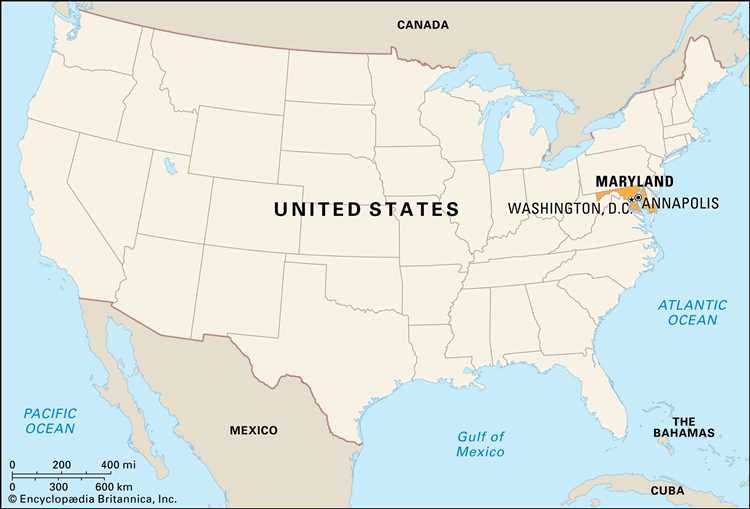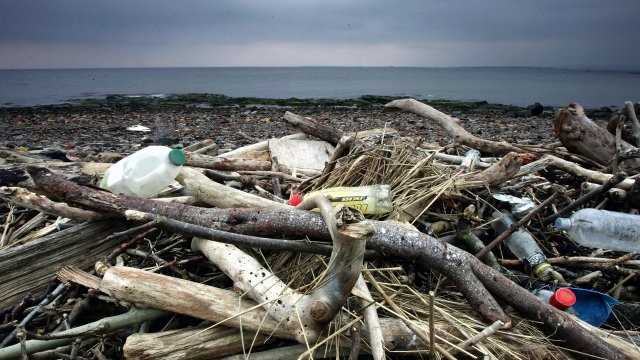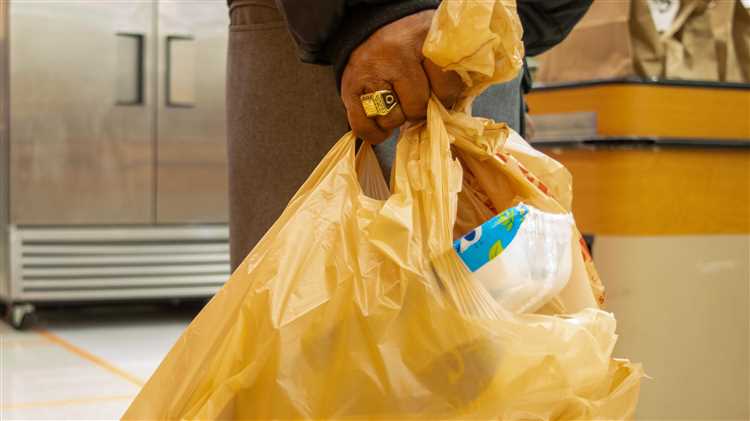
If you are a resident of Maryland or planning to visit the state, you might be wondering whether it is a bagless state or not. Bagless states have implemented laws and regulations aimed at reducing the use of single-use plastic bags in order to protect the environment and reduce waste. In recent years, there has been a growing movement across the United States to encourage the use of reusable bags instead.
Unfortunately, Maryland is not currently a bagless state. However, that does not mean that efforts to reduce plastic bag usage are not taking place in the state. Many local governments within Maryland have implemented their own bag laws. These laws vary from county to county and city to city, so it is important to be aware of the specific regulations in the area you are in or planning to visit.
Some areas in Maryland have banned the use of plastic bags altogether, while others have imposed fees on plastic bag usage. These fees are aimed at discouraging their use and encouraging individuals to bring their own reusable bags when shopping. These measures have proven to be effective in reducing plastic bag consumption and promoting a more sustainable lifestyle.
So, while Maryland as a whole is not yet a bagless state, progress is being made at the local level. By bringing your own reusable bags when shopping and supporting local efforts to reduce plastic bag usage, you can contribute to a cleaner and greener Maryland.
- Is Maryland a bagless state?
- The impact of plastic bags
- Efforts to reduce plastic bag consumption
- What is a bagless state?
- The environmental impact of plastic bags
- Bagless initiatives in other states
- California
- Oregon
- New York
- Maryland’s bagless initiatives
- Public opinion on bagless initiatives in Maryland
- Q&A,
- Is Maryland a bagless state?
- What does it mean for Maryland to be a bagless state?
- When did Maryland become a bagless state?
- Which stores are affected by the bagless policy in Maryland?
- What are the alternatives to plastic bags in Maryland?
Is Maryland a bagless state?
Many people may be wondering if Maryland is a bagless state, meaning if it has implemented a ban on single-use plastic bags in retail stores. The answer to this question is no, Maryland is not a bagless state. Currently, there is no statewide ban on single-use plastic bags in Maryland.
However, it’s important to note that some local jurisdictions within Maryland have implemented their own bag bans. For example, Montgomery County, one of the most populous counties in the state, has a bag ban in place. This means that retail stores in Montgomery County are required to provide reusable or recyclable bags to customers instead of single-use plastic bags.
While there is no statewide ban, there has been ongoing discussion and debate surrounding the issue of single-use plastic bags in Maryland. Some advocates and environmental groups believe that a statewide ban would be beneficial in reducing plastic pollution and promoting more sustainable alternatives.
The impact of plastic bags
Plastic bags are a major source of pollution and environmental damage. They are not biodegradable and can take hundreds of years to break down. This means that once they are discarded, they can end up in landfills or as litter in our communities and natural habitats.
In addition, plastic bags have a negative impact on wildlife. Animals can mistake them for food or become entangled in them, leading to injury or death. Plastic bags also contribute to ocean pollution, with estimates suggesting that millions of marine animals are impacted by plastic pollution each year.
Efforts to reduce plastic bag consumption

While Maryland does not have a statewide bag ban, there are efforts at the local level to reduce plastic bag consumption. Some cities and counties have implemented fees on single-use bags to encourage consumers to bring their own reusable bags. These fees are intended to incentivize behavior change and reduce the use of plastic bags.
In addition, many retailers in Maryland now offer reusable bags for sale and promote their use to customers. By encouraging the use of reusable bags and providing alternatives to single-use plastic bags, these retailers are taking steps to reduce plastic waste and promote more sustainable practices.
While Maryland may not be a bagless state, there are still opportunities for individuals and communities to make a positive impact by reducing their use of plastic bags and choosing more sustainable alternatives. By making small changes in our everyday lives, we can all contribute to a cleaner and healthier environment for future generations.
What is a bagless state?
A bagless state refers to a region or jurisdiction where the use of single-use plastic bags is either banned or strongly discouraged. In bagless states, consumers are encouraged to bring their own reusable bags when shopping in order to reduce the consumption of plastic bags and minimize waste.
By implementing bagless policies, states aim to promote environmental sustainability and reduce the negative impacts of plastic bag usage. Plastic bags are known to contribute to pollution, littering, and harm to wildlife. They are also made from non-renewable resources and take hundreds of years to decompose.
In bagless states, alternative options to plastic bags are available, such as paper bags or reusable bags made from materials like cotton or canvas. These alternatives are more environmentally friendly as they can be reused multiple times and are biodegradable.
Many bagless states also provide incentives to encourage consumers to adopt reusable bags. These incentives can include discounts at stores, promotional events, or educational campaigns to raise awareness about the benefits of using reusable bags.
Overall, bagless states are leading the way in promoting sustainability and reducing the use of single-use plastic bags. They provide a model for other regions and countries to follow in order to protect the environment and create a more sustainable future.
The environmental impact of plastic bags
Plastic bags have a significant negative impact on the environment. They are not biodegradable and take hundreds of years to decompose. As a result, they accumulate in landfills, rivers, and oceans, causing harm to wildlife and marine ecosystems.
Plastic bags are also a major source of pollution. Manufacturing them requires large amounts of energy and resources, contributing to greenhouse gas emissions and the depletion of natural resources. Furthermore, the disposal of plastic bags often involves incineration, which releases toxic fumes into the air and contributes to air pollution.
In addition to the harm caused during their production and disposal, plastic bags pose a threat to wildlife. Animals often mistake plastic bags for food and ingest them, leading to injury or even death. Marine animals, such as turtles and seabirds, can become entangled in plastic bags, suffocating or starving as a result.
The impact of plastic bags is not limited to wildlife. They also contribute to the problem of microplastics. Over time, plastic bags break down into smaller pieces called microplastics, which can be found in soil, water, and even in the air we breathe. These microplastics can enter the food chain and ultimately end up in our bodies, posing potential health risks.
Many countries and states have recognized the environmental impact of plastic bags and have taken steps to reduce their usage. Some have implemented bans or fees on single-use plastic bags, while others have promoted the use of reusable bags. These actions are aimed at reducing plastic waste and encouraging more sustainable alternatives.
It is important for individuals to be aware of the environmental impact of plastic bags and take proactive steps to reduce their usage. By opting for reusable bags, recycling plastic bags when possible, and supporting policies and initiatives that promote sustainability, we can all contribute to a cleaner and healthier environment.
Bagless initiatives in other states
While Maryland is not currently a bagless state, there are several other states in the United States that have implemented bagless initiatives in an effort to reduce plastic waste and promote sustainability.
California

California is known for being at the forefront of environmental regulations and has implemented a ban on single-use plastic bags. This initiative encourages consumers to bring their own reusable bags when shopping and aims to reduce litter and protect wildlife.
Oregon
Oregon has also implemented a bag ban, prohibiting the use of single-use plastic bags at retailers. This initiative has been successful in reducing plastic waste and encouraging the use of reusable bags.
New York
New York has taken steps towards reducing plastic waste by implementing a bag fee. Retailers are required to charge customers a fee for each single-use bag provided, encouraging the use of reusable bags and reducing the consumption of plastic bags.
Other states, such as Washington, Vermont, and Connecticut, have also implemented similar bagless initiatives, each with their own specific regulations and goals in mind. These initiatives aim to protect the environment, reduce plastic waste, and promote sustainable practices among consumers.
Maryland’s bagless initiatives
In recent years, Maryland has taken significant steps towards reducing plastic bag usage and promoting environmentally-friendly practices. The state has implemented a number of bagless initiatives aimed at reducing single-use plastic bags and encouraging the use of reusable alternatives.
One of the key initiatives in Maryland is the ban on plastic bags in certain retail establishments. As of October 1, 2020, all businesses in the state, including grocery stores, pharmacies, and convenience stores, are prohibited from providing plastic bags to customers at the point of sale. This ban applies to bags made from high-density polyethylene, commonly known as HDPE, which are typically used for carrying groceries and other items.
To encourage the use of reusable bags, Maryland has also implemented a Bag Tax for paper and other alternative bags. Under this initiative, customers are charged a fee for each paper or alternative bag provided by a retailer. The goal of the Bag Tax is to incentivize consumers to bring their own reusable bags instead of relying on single-use options.
In addition to the ban and Bag Tax, Maryland has also launched education campaigns to raise awareness about the environmental impact of plastic bags. These campaigns emphasize the importance of reducing plastic waste and highlight the benefits of using reusable bags. By educating the public, the state hopes to foster a culture of sustainability and encourage individuals to make eco-friendly choices.
Overall, Maryland’s bagless initiatives reflect the state’s commitment to reducing plastic pollution and promoting sustainable practices. Through bans, taxes, and education campaigns, Maryland aims to minimize the use of single-use plastic bags and encourage the adoption of reusable alternatives. These initiatives not only benefit the environment but also contribute to a cleaner and healthier future for the state and its residents.
Public opinion on bagless initiatives in Maryland
As Maryland continues to navigate its position on bagless initiatives, public opinion plays a crucial role in shaping the outcome. Many residents have expressed their support for the introduction of bagless policies, citing environmental concerns as their primary motivation.
One of the key arguments in favor of bagless initiatives is the reduction of plastic waste. Marylanders recognize the impact of single-use plastic bags on the environment, particularly on marine life. By eliminating these bags, residents believe that they can contribute to a cleaner and healthier ecosystem.
Furthermore, bagless initiatives are seen as a way to promote sustainable living and responsible consumer behavior. Proponents argue that by encouraging the use of reusable bags, Maryland can empower its residents to make eco-conscious choices. They believe that this shift can lead to long-term behavioral changes, reducing the overall consumption of single-use plastics.
However, not all residents are supportive of bagless initiatives. Some express concerns about the potential inconvenience that a ban on plastic bags may cause. They argue that plastic bags are more convenient for certain purposes, such as carrying groceries or lining waste bins. They also highlight the potential economic impact on small businesses, suggesting that the implementation of bagless policies may result in additional costs or burdens.
Despite differing opinions, it is clear that bagless initiatives have sparked a considerable amount of discourse within Maryland. Public opinion will continue to shape the debate surrounding these policies, ultimately influencing the direction the state takes in its commitment to environmental sustainability.
Q&A,
Is Maryland a bagless state?
Yes, Maryland is a bagless state.
What does it mean for Maryland to be a bagless state?
Being a bagless state means that certain stores in Maryland are prohibited from providing single-use plastic bags to customers.
When did Maryland become a bagless state?
Maryland became a bagless state on July 1, 2020.
Which stores are affected by the bagless policy in Maryland?
The bagless policy affects certain retailers, including grocery stores, convenience stores, and large retailers, such as Walmart and Target.
What are the alternatives to plastic bags in Maryland?
In Maryland, customers are encouraged to bring their own reusable bags or purchase reusable bags at the affected stores. Some stores may also offer paper bags as an alternative.